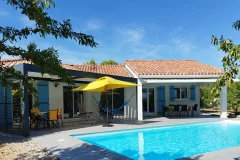House Buying Process in France
Société Civile Immobilière (SCI)
- 1. What is an SCI?
- 2. Multiple Ownership
- 3. Property Transfer
- 4. Inheritance Laws
- 5. Tax Implications
- 6. Business Use
- 7. Setting Up an SCI
- 8. Running an SCI
Guides to France
Property in France
- Buying property in France
- Buying off-plan in France
- French property auctions
- SCI Ownership
- French property rights
- Renting property in France
- Selling property in France
Building & Renovation
- Building a house in France
- French planning system
- Property renovation in France
- French property rights
- French Mobile Homes
Work & Business
Money & Taxation
- Banking in France
- French mortgages
- Currency Exchange
- Taxes in France
- French inheritance
- French home insurance
Living in France
Useful Links
AdvertiseNetwork Sites
Helpful Links
News
Services
- French Health Insurance
- French Home Insurance
- Inheritance Tax & Law Consultancy
- French Planning
- Transfer Money to France
- Metric Unit Conversion

If you require advice and assistance with the purchase of French property and moving to France, then take a look at the France Insider Property Clinic.
Guide to Société Civile Immobilière (SCI)
- What is an SCI?
- Multiple Ownership of French Property
- Transfer of French Property
- French Inheritance Laws/Taxes
- Tax Implications
- Business Use
- Setting Up an SCI
- Running an SCI
1. What is an 'SCI'?
Broadly speaking, there are three different ownership structures for the joint or multiple ownership of French property.
You can own property:
- 'En Indivision';
- 'En tontine';
- 'Société Civile Immobilière (SCI)'
An SCI is a rather specialist type of French company (société) that is constituted for the ownership and management of real estate (immobilière).
The fact that it is also civile means that it is a non-trading company, thereby distinguishing it from a company set up to pursue commercial activities.
The company will have a distinct legal identity from that of its shareholders, although except in very particular circumstances it has no separate fiscal identity. For this reason it is said to be 'fiscally transparent'.
Where an SCI is used for the purchase of a private home the owners effectively then become non-paying tenants or occupants of the property owned by the company.
The company may also hold more than one property in it, including main and second homes, as well as properties to for letting.
Many French and international buyers choose to buy a French property through an SCI because of the advantages it offers over the other two forms of ownership.
The main reasons are:
- To facilitate purchase of the property by multiple, often unrelated, persons;
- To provide stability and continuity in the ownership and management of family property;
- To facilitate the transfer and ownership of property;
- To avoid the constraints of French inheritance laws;
- To create tax advantages;
- To protect the family home from business creditors.
Despite these potential advantages, as a result of legislative and fiscal changes in recent years the arguments for owning a family property through an SCI have become weaker, so you need to consider carefully whether it is really necessary for you to use an SCI.
There are plenty of professional advisors who will no doubt tell you it would be worthwhile to set up an SCI, but if they are the same advisors who will earn the fees from setting up the company (including notaires), then you need to weigh that advice carefully.
SCI are specifically not a commercial company; that is to say they can only be established for non-trading purposes.
As furnished residential lettings are considered to be a commercial activity in France, this means you cannot let out the property on this basis. Nevertheless, it is possible to set up a structure in tandem with the creation of a limited company who undertakes the lettings activity. Many chambres d'hotes are run on this basis. Commercial property can also be held and rented via an SCI.
It is possible to let out a unfurnished property held by an SCI as this is not considered to be a 'commercial' activity, but one that falls within the definition of une activité civile.
There are also certain types of SCI that can be established for the construction and sale of property. We do not review this type of SCI in these pages.
Similarly, it is also possible to buy property in France using a foreign limited company, or other type of French limited company, but there seems no obvious reason to do so, and there are fiscal disadvantages, notably in relation to capital gains tax.
Our focus will be on an SCI set up for the purchase and retention of a private property to be used as a principal or second home.
Next: Multiple Ownership
The Guides to France are published for general information only.
Please visit our Disclaimer for full details.
-
Magnificent Tourist Property in Hérault with a Panoramic View of the Valley and the Mountains.21Hérault (34)
€3,200,000
-
Willerby Azure (2014) 3 Bedroom | Sited on a Beautiful Holiday Parc in the Heart of the Bordeaux Wine Region3Lot-et-Garonne (47)
€29,750
-
Stunning Renovated 1920s Villa on the Doorstep of Geneva. Perfect Family Home or B&B Business.6Haute-Savoie (74)
€1,795,000









